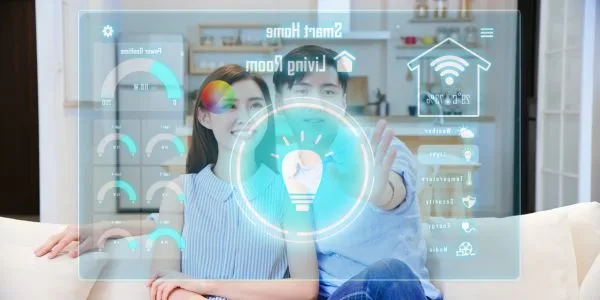Smart Gadgets and Devices for Healthcare
Discover how smart gadgets and devices are revolutionizing healthcare. From remote patient monitoring to AI-powered diagnostics, explore the future of health in this informative article.
The healthcare industry has always been at the forefront of innovation, constantly seeking ways to improve patient care, enhance treatment outcomes, and increase accessibility to medical services. In recent years, the integration of smart gadgets and devices has emerged as a promising avenue to revolutionize healthcare. From remote patient monitoring to AI-powered diagnostics, these smart technologies offer tremendous potential to transform the way healthcare is delivered. This article explores the future of health and how smart gadgets and devices are shaping the landscape of healthcare.
For more information and detailed insights on the future of healthcare and the role of smart gadgets and devices, Download our comprehensive PDF guide.
Introduction
In today’s fast-paced world, where technological advancements are rapidly reshaping various sectors, it comes as no surprise that healthcare is also being revolutionized. The integration of smart gadgets and devices holds immense promise in enhancing patient care, improving treatment outcomes, and empowering individuals to take control of their health. By leveraging cutting-edge technologies such as artificial intelligence, Internet of Things (IoT), and telecommunication, healthcare providers can deliver personalized, efficient, and accessible care to patients. The future of healthcare lies in harnessing the power of these smart technologies to transform the industry and improve the well-being of individuals.
Remote Patient Monitoring

Remote patient monitoring is a groundbreaking approach that enables healthcare providers to monitor patients’ health status and vital signs remotely. This method involves the use of smart gadgets and devices that capture and transmit real-time data to healthcare professionals. By leveraging wearable fitness trackers, blood pressure monitors, and glucose monitors, among other devices, patients can be closely monitored from the comfort of their homes. This technology offers several benefits, including improved patient outcomes, cost-effectiveness, and enhanced patient experience.
Telemedicine and Virtual Consultations

Telemedicine and virtual consultations have gained significant traction in recent years, especially with the advancements in communication technologies. Telemedicine involves the remote delivery of healthcare services, allowing patients to consult with healthcare professionals through video conferencing tools or other virtual platforms. This approach offers increased accessibility to healthcare, reduced healthcare costs, and improved patient engagement. Smart gadgets such as video conferencing tools, remote examination devices, and smart home healthcare kits play a pivotal role in facilitating telemedicine and virtual consultations.
AI-Powered Diagnostics

The integration of artificial intelligence (AI) in diagnostics has revolutionized the way diseases are detected, diagnosed, and treated. AI-powered diagnostic tools leverage machine learning algorithms and vast databases of medical knowledge to provide faster and more accurate diagnoses. These tools analyze medical images, assist in symptom assessment through AI chatbots, and even aid in genomic analysis for personalized treatment plans. The application of AI in diagnostics holds tremendous potential to improve healthcare outcomes and reduce the burden on healthcare professionals.
Medication Management

Medication management is a critical aspect of healthcare, but it often poses challenges for both patients and healthcare providers. Smart gadgets offer innovative solutions to address these challenges and improve medication adherence. Smart pill dispensers, medication reminder apps, and prescription tracking systems help patients stay on track with their medications, ensuring they take the right dosage at the right time. These devices not only enhance patient compliance but also reduce the risk of medication errors and improve overall treatment outcomes.
Health and Wellness Tracking

Maintaining optimal health and wellness is essential for overall well-being. Smart devices have emerged as powerful tools for tracking various aspects of health and wellness. Fitness wearables, such as activity trackers and smartwatches, monitor physical activity, heart rate, and sleep patterns, enabling individuals to make informed decisions about their lifestyle and exercise routines. Sleep trackers provide insights into sleep quality, while nutrition apps assist in tracking dietary habits. These devices empower individuals to take control of their health and make positive lifestyle changes.
Chronic Disease Management

Chronic diseases, such as diabetes, asthma, and heart disease, require ongoing management and monitoring. Smart gadgets play a crucial role in empowering individuals to manage their chronic conditions effectively. Continuous glucose monitors provide real-time blood glucose readings for people with diabetes, allowing them to make informed decisions regarding their diet, medication, and physical activity. Smart inhalers help individuals with asthma track their inhaler usage and identify potential triggers. Remote cardiac monitors enable individuals with heart disease to monitor their heart health from the comfort of their homes, reducing the need for frequent hospital visits.
Ethical and Privacy Considerations

While the integration of smart gadgets and devices brings numerous benefits, it also raises ethical and privacy concerns. As these devices collect and transmit sensitive health data, ensuring patient privacy and data security becomes paramount. Ethical considerations include issues such as data ownership, consent, and the potential impact on the doctor-patient relationship. Healthcare providers and policymakers must address these concerns by implementing robust privacy measures, ensuring transparent data usage, and establishing guidelines for the responsible use of smart technologies in healthcare.
Future Possibilities and Challenges

The future of healthcare holds exciting possibilities as smart gadget technology continues to advance. Integration with emerging technologies such as virtual reality, augmented reality, and blockchain can further enhance healthcare delivery. The synergy between smart gadgets, AI, and machine learning will pave the way for more accurate diagnostics, personalized treatments, and proactive preventive care. However, along with these advancements, challenges such as regulatory frameworks, interoperability, and standardization need to be addressed to ensure the seamless integration of smart technologies into healthcare systems.
Conclusion: How Smart Gadgets and Devices Are Revolutionizing Healthcare
Smart gadgets and devices are transforming the healthcare industry by revolutionizing patient care, diagnostics, medication management, and overall health and wellness tracking. Remote patient monitoring, telemedicine, AI-powered diagnostics, and chronic disease management are just a few areas where these technologies are making a significant impact. While ethical and privacy concerns need to be addressed, the future of healthcare looks promising with the continued integration of smart technologies. By embracing these advancements, healthcare providers can deliver more personalized, efficient, and accessible care, ultimately improving the well-being of individuals and transforming the healthcare landscape.
FAQs
- How do smart gadgets improve patient outcomes?
- Smart gadgets enable remote monitoring, early detection of health issues, and personalized treatment plans, leading to improved patient outcomes.
- Are smart devices cost-effective for healthcare providers?
- Yes, smart devices can lead to cost savings by reducing hospital visits, preventing complications, and improving overall treatment efficiency.
- Can AI replace human doctors in diagnostics?
- AI cannot replace human doctors but can assist them in making faster and more accurate diagnoses by analyzing vast amounts of medical data.
- What are the privacy concerns related to smart gadgets?
- Privacy concerns include data security, unauthorized access to health data, and potential misuse of sensitive information. Strict privacy measures should be implemented to address these concerns.
- Will the use of smart gadgets in healthcare become mandatory?
- The use of smart gadgets in healthcare is not mandatory, but their adoption is likely to increase as their benefits become more apparent and widespread.
For more information and detailed insights on the future of healthcare and the role of smart gadgets and devices, Download our comprehensive PDF guide.
Remember! to choose healthcare gadgets and devices based on your specific
needs and consult with healthcare professionals for personalized advice.
These gadgets can provide valuable information and aid in personal health
management, but they should not replace professional medical care and
guidance.






